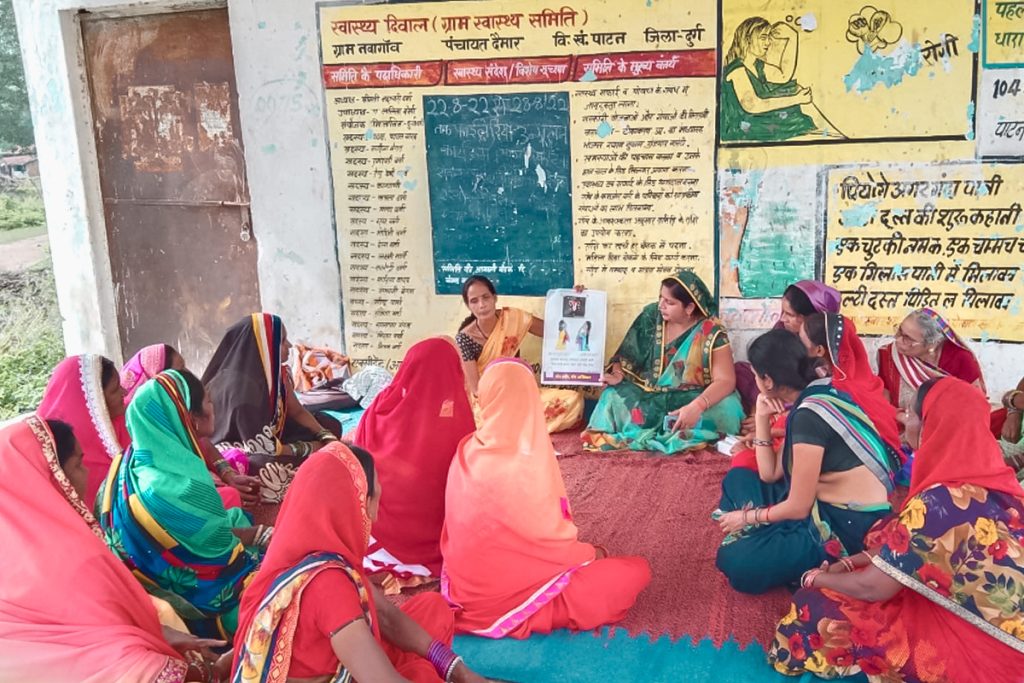
We use a range of intervention strategies to enable people realise their health rights and entitlements in more effective and sustainable ways. These are:
- Building Capacities and Leadership
- Research
- Policy Advocacy and Monitoring
- Creation and Dissemination of Knowledge Resources
- Building Partnerships, Active Constituencies and Coalitions
Through these core interlinked strategies, we enable the strengthening of feminist, social, and health justice perspectives and analysis. Our capacity and leadership building initiatives contribute to advocacy by providing a platform to articulate health needs and priorities, strengthen skills to carry out critical analysis, and develop leadership to support and strengthen community-based organisations.
In the last 24 years, we have trained and built the capacities and leadership of over two thousand health and women’s groups, CSOs, health activists, health care providers, researchers, students, community leaders, and youth leaders. They were from states like Andhra Pradesh, Assam, Bihar, Chhattisgarh, Delhi, Haryana, Jharkhand, Karnataka, Madhya Pradesh, Maharashtra, Meghalaya, Nagaland, Odisha, Rajasthan, Tamil Nadu, Telangana and Uttar Pradesh and worked at the community, state, regional, and national levels.
Research is used to substantiate advocacy efforts by building evidence and amplifying marginalised grassroots realities. The research and assessments on sexual and reproductive and health (SRH), gender-based violence (GBV), access to health care, pandemics and public health, early marriage and mental health, reproductive and biotechnologies, gender and genetic disorders and non-communicable diseases have drawn attention to and expanded our understanding of existing and emerging challenges to the needs and concerns of communities, particularly of girls and women.
The development of knowledge resources such as reports, booklets, info sheets, policy briefs, and podcasts, as well as academic curricula, advances the discourse on health, social and gender justice through their widespread dissemination.
Given our well-established linkages as well as sustained efforts at outreach at both the policy and grassroots levels, we are well positioned to inform health policy and programmes based on ground realities. We are also able to facilitate platforms for articulation, dissemination, and critical analysis of health needs, priorities, and policy by community-based organisations, collectives, and women’s groups in rural and urban areas.
We acknowledge the importance of linkages between rights-affirming movements and coalitions in order to facilitate diverse expressions towards a more nuanced understanding of health and access to healthcare for the most marginalised and vulnerable members of society.
Working on feminist principles of collaboration and partnership, we have maintained close contacts with other women’s groups and networks, as well as progressive pro-poor organisations at multiple levels. These collaborations and partnerships take place at local, national as well as international levels and range from organising events and conferences, capacity building, co-creating knowledge resources, and designing research and other interventions.
During the COVID 19 pandemic, we followed a conscious path to address multiple issues related to the COVID 19 based on collective experiences, dialogues, including information exchange and synergised support for access to diagnostics, vaccines, and care. We have a dedicated webpage, Covid Canvases, on this.




